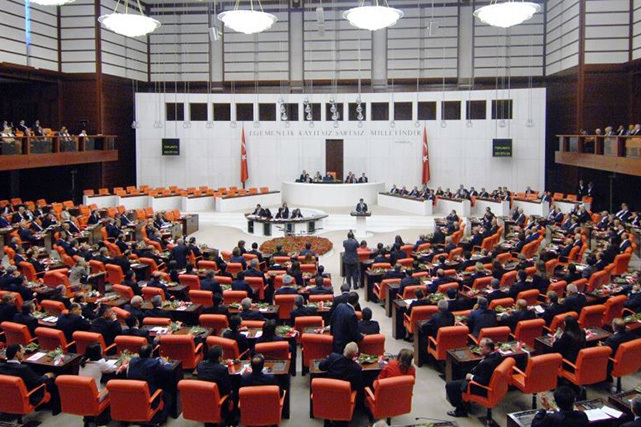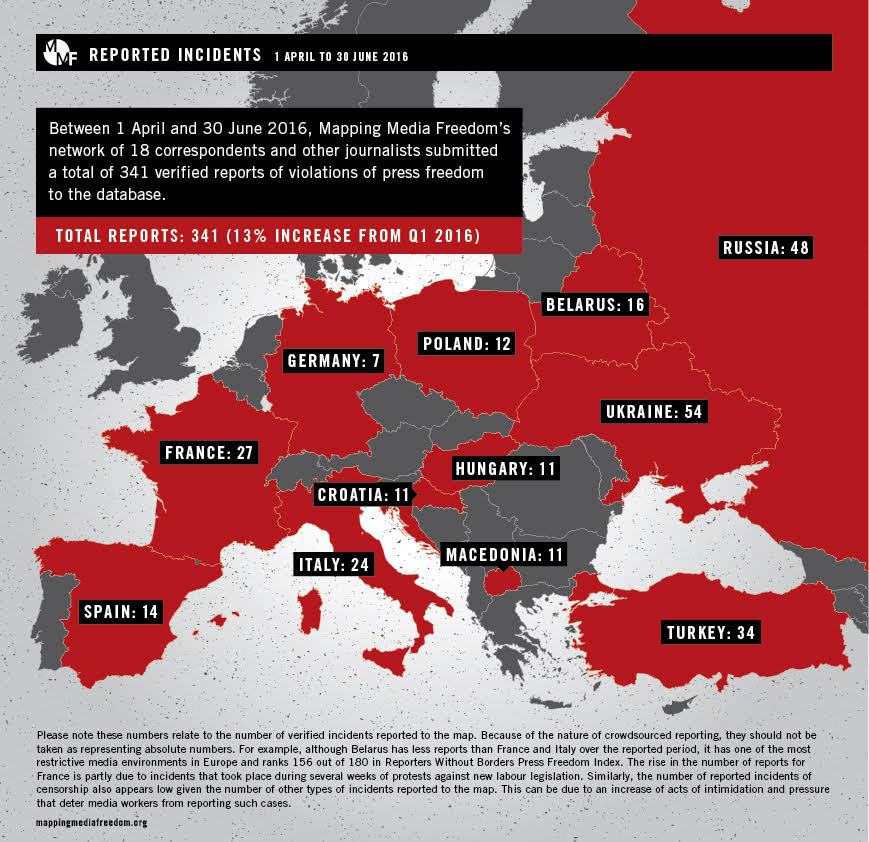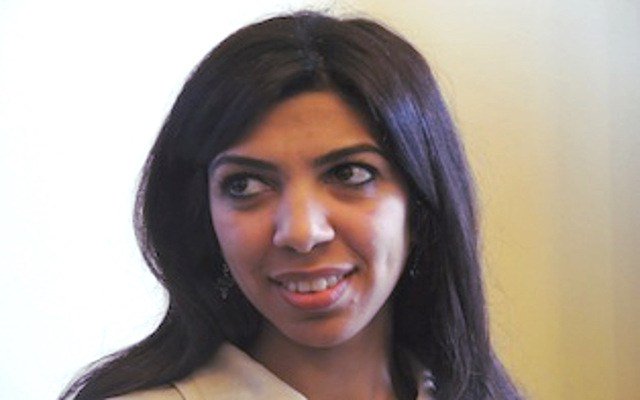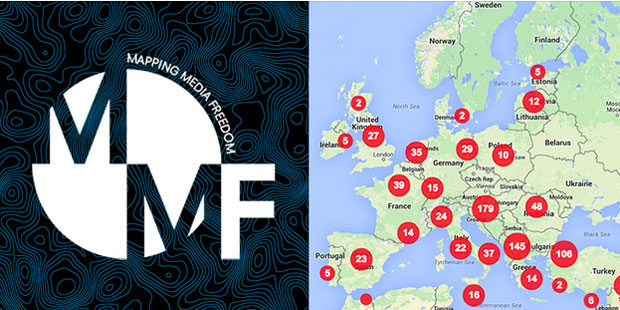27 Oct 2016 | Campaigns, Campaigns -- Featured, Statements, Turkey, Turkey Statements

The Grand National Assembly of Turkey. Credit: Wikimedia
The undersigned organisations call on Turkey’s national assembly to end the recently extended state of emergency, and take immediate steps to repair the damage to freedom of expression and Turkish democracy since the defeat of the 15 July coup.
We respect the need for every government to assure the safety of its citizens, yet the measures taken under the state of emergency since July go far beyond what is necessary for public safety, and are destroying the vibrant political culture of open, diverse dialogue that distinguishes a democracy from a dictatorship.
In the three months since 15 July, over 100,000 people have been dismissed from their positions, most for supposed affiliation with the Gulenist movement. Over 25,000 have been arrested, over 2,000 educational establishments have been closed, and more than 150 media outlets have been shut down. Since the declaration of the state of emergency at least 98 journalists have been jailed, bringing the total number of imprisoned journalists in Turkey to 130, not counting those that have been detained and released without charge – making Turkey the world’s leading jailer of journalists.
As Reporters without Borders has documented, those who have worked with or for organisations sympathetic to the Gulenists are being treated as automatic members of the movement. Members of the movement, in turn, are treated as participants in the coup. In casting such a wide net in its crackdown, Turkey’s government is violating both internationally recognised human rights and universally understood principles of justice by ascribing guilt by association, not evidence, and punishing individuals for their thoughts and beliefs, not their actions.
The extension of the crackdown to Kurdish, Alevi and left-wing media uninvolved in the coup suggests that the state of emergency is being abused beyond its stated purpose and is used for harassing individuals and groups that are merely inconvenient to the government in power, not threats to the democratic system. Many are being detained and punished not for a threat they pose to the Turkish government, or to their fellow citizens, but because they disagree with the government’s actions or policy, or are part of or sympathetic to a minority group.
The survival of democracy requires strong tolerance for a broad spectrum of opinion and belief in public life, including those that majority opinion finds inconvenient. Suppressing the independent voice and participation of minorities in public discourse in the name of anti-terrorism is not only a subversion of their free expression rights – it feeds the discontent that grows into extremism. It will be a poor tribute to the peaceful and democratic spirit of 15 July if weakening democracy and strengthening extremism is the direction chosen by the Turkish people’s political representatives in its aftermath.
We call on the national assembly to take immediate steps to protect the right of all citizens to freedom of expression and belief. We believe the state of emergency must either be ended, or greatly narrowed in its scope. We therefore recommend that you:
- Return police detention without legal review to the normal maximum four day period, and amend other provisions of the state of emergency to be compatible with the European Convention on Human Rights and International Covenant on Civil and Political Rights;
- Explicitly limit terrorism charges to individuals for whom clear evidence exists of acts of violence, intent to commit acts of violence, or advocating of acts of violence, and drop terrorism charges against all those, like Ayşe Çelik and her co-defendants, who have not committed such an act;
- Refer cases of media affected by the recent shutdowns back to the judiciary, and permit them to re-open unless and until they are found guilty of a serious crime;
- Set clear limits on the use of travel bans and passport confiscation, and end the extension of these measures to family members;
- Renew respect for press credentials by state agents, and return confiscated credentials to press not found guilty of a crime.
Signed,
Initiative for Freedom of Expression – Turkey
Afghanistan Journalists Center
Albanian Media Institute
Americans for Democracy and Human Rights in Bahrain
ARTICLE 19
Association for Civil Rights
Bytes for All
Canadian Journalists for Free Expression
Center for Independent Journalism – Hungary
Center for Independent Journalism – Romania
Freedom Forum
Freedom House
Free Media Movement
Human Rights Network for Journalists – Uganda
Index on Censorship
International Press Centre
Journaliste en danger
Maharat Foundation
Media, Entertainment and Arts Alliance
Media Institute of Southern Africa
Media Watch
Norwegian PEN
Observatorio Latinoamericano para la Libertad de Expresión – OLA
OpenMedia
Pakistan Press Foundation
PEN American Center
PEN Canada
PEN International
Reporters Without Borders
Trinidad and Tobago’s Publishers and Broadcasters Association
Vigilance pour la Démocratie et l’État Civique
World Association of Community Radio Broadcasters – AMARC
Anatolian Heritage Foundation
Association of European Journalists
Centre for Freedom of Expression at Ryerson University
English PEN
SEEMO
PEN Germany
Wales PEN Cymru
2 Aug 2016 | About Index, Index Reports, Press Releases

Violence against journalists in Europe increased in the second quarter of 2016, reports submitted to Index on Censorship’s Mapping Media Freedom platform show, as a government crackdown in Turkey intensified and protests turned violent in countries from France to Finland.
“Europe is considered one of the safest places for journalists in the world. However, increasing concerns about national security in the region – coupled with creeping authoritarianism – is making it an increasingly difficult place for the media to operate freely and safely,” said Hannah Machlin, project officer for Mapping Media Freedom. “And the threats are not just coming from the usual suspects: 12 incidents of injuries to journalists occurred in France and in a number of these cases journalists appear to have been directly targeted by police.”
Between 1 April and 30 June 2016, Mapping Media Freedom’s network of 18 correspondents and other journalists submitted a total of 341 violations of press freedom to the database, a 13% rise over the first quarter of 2016.
Key findings from the Q2 report
- Two journalists were killed. Mohammed Zahir al-Shergat died as a result of gunshot wounds in the city of Gaziantep, Turkey; journalist and radio host Luka Popov from northern Serbia was found dead in his home in Srpski Krstur
- 60 incidents of physical assault were confirmed
- 45 criminal charges and civil lawsuits were filed
- Media professionals were detained in 41 incidents
- 80 verified reports of intimidation, which includes psychological abuse, sexual harassment, trolling/cyberbullying and defamation were recorded
- Work was censored or altered 15 times
- Media professionals were blocked from covering a story in 73 incidents
“The fight for the abolition of prison sentences for offences committed through the press is unfortunately still relevant in Europe and neighboring countries,” Christophe Deloire, Reporters Without Borders secretary general said. “In a climate of growing fear and suspicion, judicial persecution of journalists takes more and more diversified forms. The Turkish authorities continue to invoke the anti-terrorism law, the protection of state secrets or insults to the head of state to prosecute and imprison more journalists.”
“Journalists are beaten, intimidated, imprisoned and killed in the pursuit of telling a story, exposing the truth and informing the public. These courageous men and women are the vanguard for free speech, freedom of expression and, ultimately, a free and democratic society. We need to come together and fight for journalists’ safety and end impunity for crimes committed against journalists,” said Dunja Mijatović, the OSCE Representative on Freedom of the Media.
The report is available now at https://mappingmediafreedom.org/plus/ or as a PDF.
For more information, please contact Hannah Machlin, Mapping Media Freedom project officer at [email protected]
About Mapping Media Freedom
Mapping Media Freedom – a joint undertaking with the European Federation of Journalists and Reporters Without Borders and partially funded by the European Commission – covers 42 countries with a network of correspondents, including all EU member states, plus Albania, Azerbaijan, Belarus, Bosnia, Iceland, Kosovo, Macedonia, Montenegro, Norway, Russia, Serbia, Turkey, Ukraine and Vatican City. In September 2015 the platform expanded to monitor Russia, Ukraine and Belarus and in February 2016 into Azerbaijan. Each report is fact checked with local sources before becoming available on the interactive map. Since launching in May 2014, the map has recorded over 2,000 incidents threatening media freedom.
28 Jul 2016 | Bahrain, Bahrain Statements, Campaigns, Campaigns -- Featured, Statements

Nazeeha Saeed has been arbitrarily curtailed by Bahrain’s Information Affairs Authority.
We, the undersigned, express our deep concern with the Bahraini Public Prosecution’s decision to charge Nazeeha Saeed, correspondent for Radio Monte Carlo Doualiya and France24, with unlawfully working for international media. We consider this an undue reprisal against her as a journalist and call on Bahrain’s authorities to respect fully the right of journalists to practice their profession freely.
Nazeeha Saeed is an award-winning journalist and correspondent for Radio Monte Carlo Doualiya and France24. She has previously reported on the protest movement in 2011, and has reported on the mounting dissent against the Bahraini government for the last several years.
On Sunday 17 July 2016, the Public Prosecution summoned Nazeeha Saeed for interrogation based on a legal complaint from the Information Affairs Authority (IAA). The prosecution charged her under article 88 of Law 47/2002, which regulates the press, printing and publication. Article 88 states that no Bahraini can work for foreign media outlets without first obtaining a license from the Information Affairs Authority (IAA), which must be renewed annually.
Prior to the expiration of her license, Nazeeha Saeed applied for a new one at the end of March 2016, at which point, the IAA refused a renewal. This is the first time she has received such a rejection. Following this, Saeed continued to work as a correspondent for France24 and Radio Monte Carlo Doualiya. She now faces trial in the civil courts and a fine of up to 1000 Bahraini Dinars (USD $2650) if found guilty.
This is not the first time Nazeeha Saeed has been subjected to harassment by the Bahraini authorities. In May 2011, during a state of emergency imposed in response to Arab Spring protests, police summoned Saeed to the station and detained her there. For her coverage of events in Bahrain – Nazeeha Saeed witnessed police killing a man at a protest and rejected the government narrative of events – police allegedly subjected her to hours of torture, ill-treatment and humiliation, which only ended when she signed a document placed before her. She was not allowed to read it. Despite complaining to the Ministry of Interior and the new Special Investigations Unit, the body under the Public Prosecution charged with investigating claims of torture and abuse, in November 2015 the authorities decided against prosecuting the responsible officers on the basis of there being insufficient evidence.
In June 2016, Bahrain’s authorities placed Nazeeha Saeed on a travel ban, preventing her from leaving the country. The ban was applied without informing Saeed, who only discovered it after she was refused boarding on her flight. The police officer at the airport was unable to explain the reason for this travel ban, and officials from the immigration department, the public prosecution and the Criminal Investigation Department (CID), told the journalist that they were not even aware of its existence. Saeed is one of approximately twenty individuals known to have been banned from travel in Bahrain since the beginning of June 2016. Other journalists working for international media face similar threats and have also reported facing increased pressure from the government in the last year, making their work difficult. RSF and the Committee to Protect Journalists both list Bahrain as one of the leading jailers of journalists in the world. One of them, Sayed Ahmed Al-Mousawi, was stripped of his citizenship by a court in November 2015.
As organisations concerned with the right to freedom of expression, we call on the Government of Bahrain to end the reprisals against Nazeeha Saeed, lift her travel ban and drop the charges against her. We also call on the authorities to stop arbitrarily withholding license renewals and to allow journalists to report with full freedom of expression as protected under Article 19 of the Universal Declaration of Human Rights and Article 19 of the International Covenant on Civil and Political Rights.
Signed,
Adil Soz, International Foundation for Protection of Freedom of Speech
ACAT
Albanian Media Institute
Americans for Democracy and Human Rights in Bahrain
ARTICLE 19
Bahrain Center for Human Rights
Bahrain Institute for Rights and Democracy
Bahrain Press Association
Bytes for All
Canadian Journalists for Free Expression
Cartoonists Rights Network International
Center for Media Freedom and Responsibility
Committee to Protect Journalists
Egyptian Organization for Human Rights
English PEN
European Centre for Democracy and Human Rights
Foro de Periodismo Argentino
Freedom Forum
Freedom House
Free Media Movement
Front Line Defenders
Gulf Centre for Human Rights
Hisham Al Miraat, Founder, Moroccan Digital Rights Association
Human Rights Network for Journalists – Uganda
Independent Journalism Center – Moldova
Index on Censorship
Institute for the Studies on Free Flow of Information
Instituto de Prensa y Libertad de Expresión – IPLEX
International Press Institute
Justice Human Rights Organization
Maharat Foundation
Media, Entertainment and Arts Alliance
Media Watch
Norwegian PEN
Pacific Islands News Association
Pakistan Press Foundation
Palestinian Center for Development and Media Freedoms – MADA
PEN American Center
PEN Canada
PEN International
Reporters Without Borders
Social Media Exchange – SMEX
Vigilance pour la Démocratie et l’État Civique
24 May 2016 | About Index, Azerbaijan News, Campaigns, Campaigns -- Featured, Europe and Central Asia, Mapping Media Freedom, mobile

Journalists have been murdered and burned in effigy. Reporters have been publicly discredited by government officials, prosecuted for under anti-terrorism laws and excluded from public meetings on the refugee crisis. We’ve even recorded journalists being menaced with mechanical diggers.
Mapping Media Freedom launched to the public on 24 May 2014 to monitor media censorship and press freedom violations throughout Europe. Two years on, the platform has verified over 1,800 incidents, ranging from insults and cyberbullying to physical assaults and assassination.
“The original impetus behind the project was to uncover everyday attacks on press freedom in Europe. The database has given Index, its partners and policy makers a highly unnerving look at the ways journalists are barred, attacked or even murdered simply for doing their jobs,” Hannah Machlin, project officer for Mapping Media Freedom, said.
The project has been granted renewed funding by the European Commission.
“The strength of Mapping Media Freedom is that it provides an ongoing narrative about the state of press freedom in the European region. It is gratifying that the European Commission values its contribution to the project by renewing its funding for a third year,” Melody Patry, senior advocacy officer, Index on Censorship said.
Over the period of coverage, Mapping Media Freedom has released periodic reports on the verified incidents. In the first quarter of 2016, the project received a total of 301 violations of press freedom to the database, a 30% rise over the fourth quarter of 2015. Earlier reports documented similar trends: February 2016, October 2015, May 2015 and December 2014.
The platform — a joint undertaking with the European Federation of Journalists and Reporters Without Borders and partially funded by the European Commission — covers 40 countries, including all EU member states, plus Albania, Belarus, Bosnia, Iceland, Kosovo, Macedonia, Montenegro, Norway, Russia, Serbia, Turkey, Ukraine and Azerbaijan. In September 2015 the platform expanded to monitor Russia, Ukraine and Belarus and in February 2016 into Azerbaijan. Since launching in May 2014, the map has recorded over 1,800 violations of media freedom, as 17 May 2016. Each report is fact checked with local sources before becoming publicly available on the interactive map.
Mapping Media Freedom works in conjunction with the Council of Europe’s platform about the safety and protection of journalists, provides resources for researchers and information for journalists. It is also affiliated with European Youth Press, Media Legal Defence Initiative, Human Rights House Kiev, Ossigeno per L’Informazione, Osservatorio Balconi e Caucaso and the European Centre for Press and Media Freedom.




